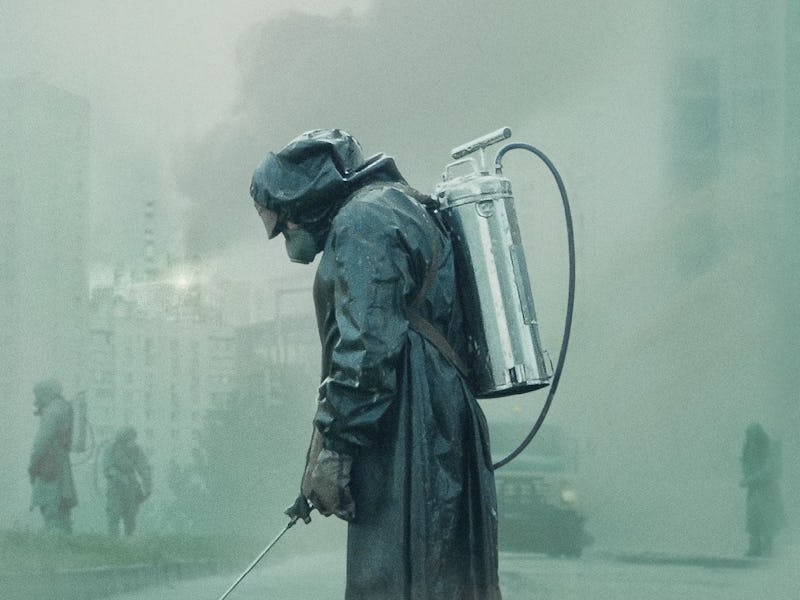HBO’s Darkest Miniseries Paved the Way for The Last of Us
A true story was given the dedication it deserves.

Fictional disasters are fun to watch; just ask Roland Emmerich. Seeing a worst-case scenario unfold feels thrilling from a narrative perspective, because we know what we’re watching is a ridiculous fantasy. But real-life disaster stories are a different beast. That narrative distance is erased and replaced with the irony of the viewer knowing more than the characters struggling through history as it happens. Five years ago, that dark irony was perfectly demonstrated by one of HBO’s miniseries, one that came from an unlikely writer and set the stage for a fictional disaster story years later.
Chernobyl was a pet project of Craig Mazin, who in 2014 was hot off the heels of writing comedies Identity Thief and The Hangover Part III. Chernobyl was quite the change, but he started researching the Soviet nuclear disaster and found that reading the first-person accounts made the story come alive. Instead of focusing on the mass scale of the disaster, Mazin’s scripts highlight certain characters — a firefighter’s wife, a professor, a scientist — to paint a bigger image.
Emily Watson plays Ulana Khomyuk, a composite character representing all the scientists who responded to the disaster.
The first episode is a tough watch. We see the reactor’s control crew attempt a risky test, knowing they’re about to be exposed to deadly amounts of radiation. We watch the explosion from an apartment window and see the panic on people’s faces before they resolve to get things under control. It’s a painful story, and it’s a true one, meticulously researched with minute-by-minute accounts.
But Chernobyl isn’t really about the disaster itself. The rest of the series focuses on the fallout — figurative and literal — and how it was affected by mismanagement and denial the disaster happened at all. It all leads to a finale centered around stirring witness testimony given by chemist Valery Legasov (Jared Harris). “When the truth offends, we lie and lie until we can no longer remember it is even there, but it is still there,” he says. “Every lie we tell incurs a debt to the truth.”
In 2019, when “fake news” was on everyone’s lips, Chernobyl was a cautionary tale as much as a historical disaster drama. “The lesson of Chernobyl isn't that modern nuclear power is dangerous,” Craig Mazin tweeted at the time. “The lesson is that lying, arrogance, and suppression of criticism are dangerous.”
Chernobyl is about the spread of information as much as the nuclear disaster.
Mazin would later help create and run The Last of Us, another HBO miniseries focused on the aftermath of a disaster. It’s a fictional tale that works on an entirely different level from this true tragedy, but in its early moments, when a scientist matter-of-factly says the best approach to a lethal virus is to start bombing its victims, it’s hard not to see the effect of all the macabre research Mazin did for Chernobyl.
Unlike The Last of Us, there will never be a Season 2 of Chernobyl. It ends only with a haunting epilogue about its characters’ true fates. It’s a hard watch, but the beautiful character portraits and stirring dialogue are a reminder of why tragedies, and the humans involved in them, need to be remembered.